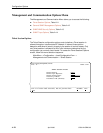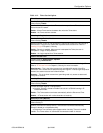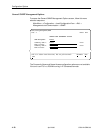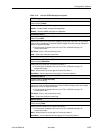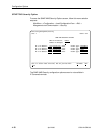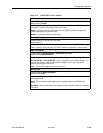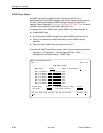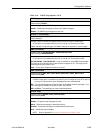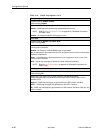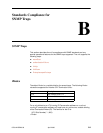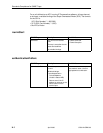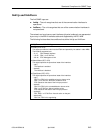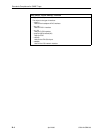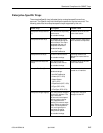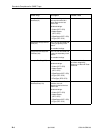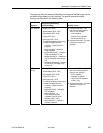
Configuration Options
A-32
8700-A2-GB20-00April 2000
Table A-14. SNMP Traps Options (2 of 2)
Enterprise Specific Traps
Possible Settings: Enable, Disable
Default Setting: Disable
Determines if SNMP traps are generated for enterprise-specific events.
Enable – SNMP traps are generated for enterpriseSpecific events.
NOTE: Refer to Enterprise Specific Traps in Appendix B, Standards Compliance
for SNMP Traps.
Disable – No enterprise-specific event traps are sent.
Link Traps
Possible Settings: Disable, Up, Down, Both
Default Setting: Both
Determines if SNMP traps are generated for link up and link down for one of the
communication interfaces.
Disable – No linkUp or linkDown SNMP traps are generated.
Up – A linkUp trap is generated when the unit recognizes that one of the communication
interfaces is operational.
Down – A linkDown trap is generated when the unit recognizes a failure in one of the
communication interfaces.
Both – Sends trap messages for detection of both linkUp and linkDown.
NOTE: Refer to linkUp and linkDown in Appendix B, Standards Compliance for
SNMP Traps.
Link Traps Interfaces
Possible Settings: Network, DSX-1, All
Default Setting: All
Determines if the SNMP linkUp, SNMP linkDown, and interface-related
enterpriseSpecific traps are generated for the network DSL interface and/or DSX-1
interface (DTE).
Network – SNMP trap messages are generated for the DSL network interface.
DSX-1 – SNMP trap messages are generated for the DSX-1 interface.
All – SNMP trap messages are generated for the DSL network interface, COM port, and
DSX-1 interface.



